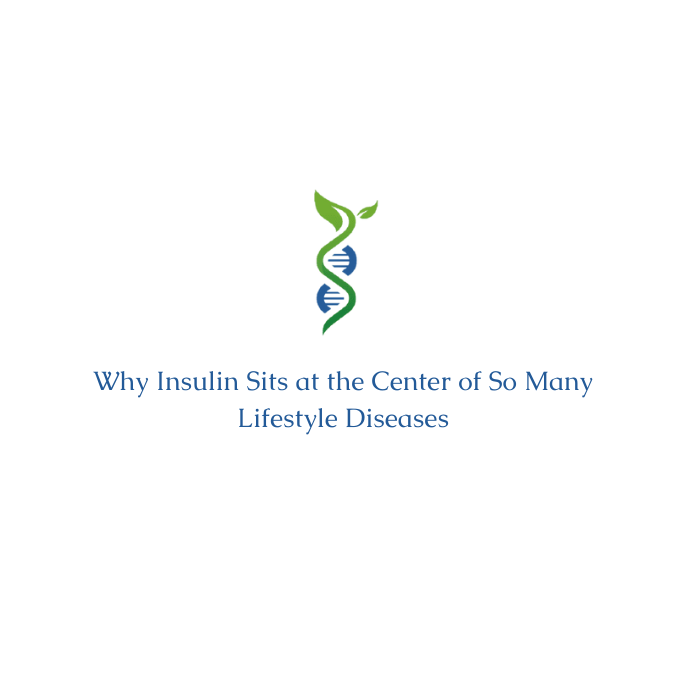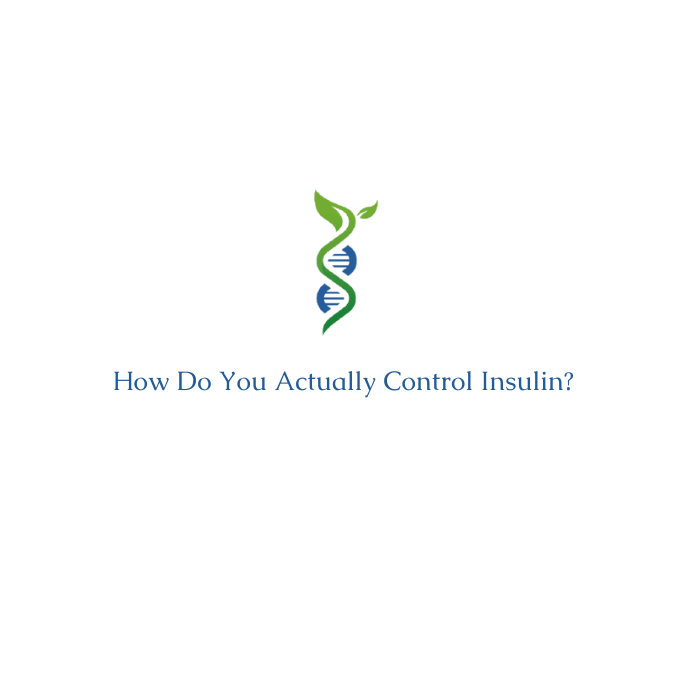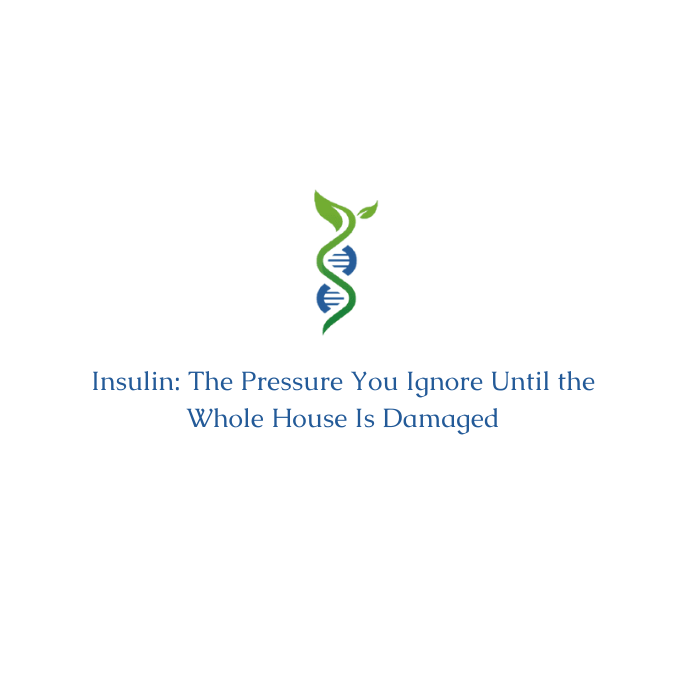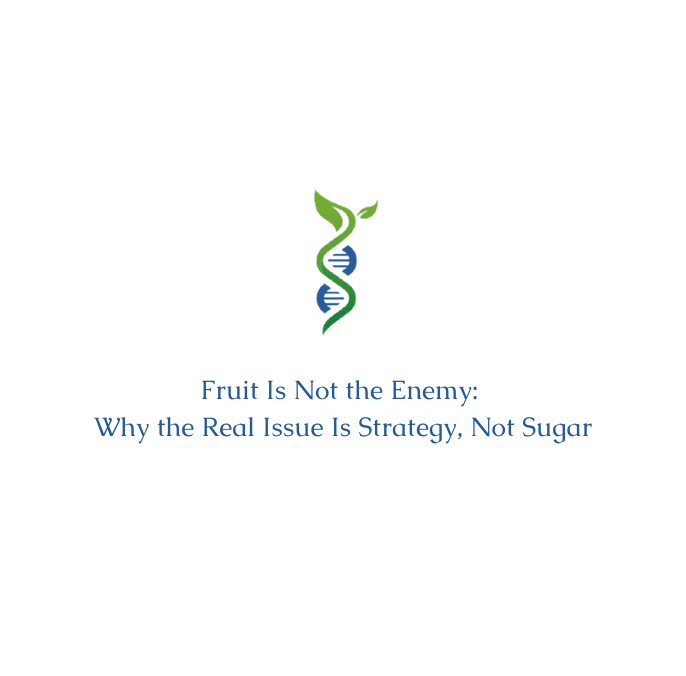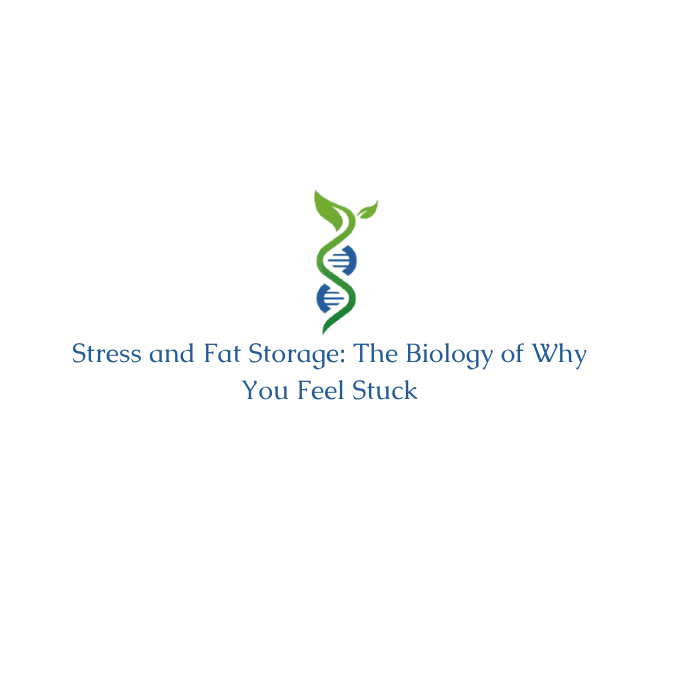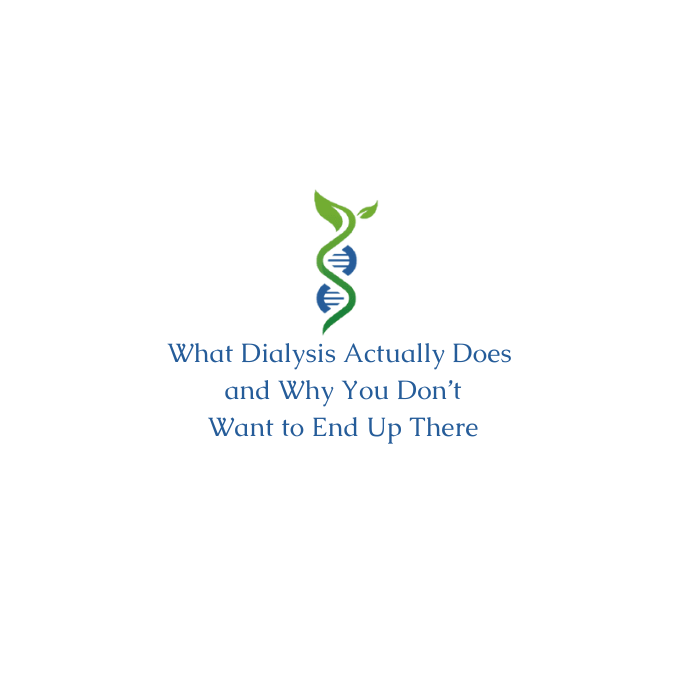Lower the Pressure, Then Fix the Pipes
When multiple systems are under strain, the instinct is often to fix everything at once. But in metabolic health, ongoing damage is usually driven by pressure, not a single broken part. This article explains why lowering insulin pressure creates physiological stability, reduces background stress across systems, and allows real repair to begin. Before you chase every symptom, this piece shows why stabilizing the system comes first.
Why Insulin Sits at the Center of So Many Lifestyle Diseases
When multiple things feel off in the body, most people go searching for the exact diagnosis before taking action. But metabolic damage rarely starts in one place. This article explains why insulin acts like pressure in a plumbing system and why reducing that pressure can limit damage even before you know which pipe is leaking. If fat loss feels stuck, labs keep drifting, or symptoms seem scattered, this piece explains where real control actually begins.
How Do You Actually Control Insulin?
Once you understand insulin’s role, the next question isn’t whether it matters. It’s how to influence it in a way that actually works long term. This article explains why extremes and elimination often backfire, and why structure, timing, and muscle demand shape insulin behavior more reliably than restriction ever could. If you’re looking to improve metabolic outcomes without turning food into rules, this piece shows how capacity and context change the biology underneath the decision.
Fruit Is Not the Enemy: Why the Real Issue Is Strategy, Not Sugar
Most people don’t struggle with fruit because fruit is “bad.” They struggle because fruit is entering a metabolism that’s under-trained, under-moved, and under-prepared to use carbohydrates efficiently. Fruit isn’t the enemy, strategy is. When you learn to time fruit around movement, pair it with protein, and match your carb intake to your lifestyle, fruit becomes one of the cleanest tools for energy, recovery, and fat loss.
The Heart That Burns Fat: How Insulin Resistance Steals Its Energy and How to Get It Back
Your heart doesn’t run on sugar it runs on fat. But when insulin resistance blocks that pathway, energy balance and flexibility collapse. Here’s how to restore it.
Your Body Isn’t Failing. It’s Adapting
Your body isn’t betraying you. It’s adapting. As hormones shift starting over 40, the way you process energy, insulin, and recovery changes too. This new biology simply needs a new strategy. One built on muscle, balanced meals, and recovery that supports your body’s natural intelligence.
The Biology of Hot Flashes and Their Connection to A1C
Hot flashes aren’t just hormonal changes. They’re a signal from your brain that your hormones, stress, and blood sugar are out of sync. As estrogen drops, insulin sensitivity and temperature control shift together. Understanding this connection helps you calm both the heat and your A1C through muscle, nutrition, and recovery.
Why Muscle Is the New Hormone
Muscle isn’t just for strength it’s your body’s most powerful hormone system. Every time you train, your muscles release messengers called myokines that improve insulin sensitivity, balance energy, and support healthy aging. For women over 40, building muscle is how you reset metabolism and bring your hormones back into rhythm.
The Estrogen–Insulin Connection After 40
As estrogen declines after 40, your body’s relationship with insulin changes and that’s why fat loss, cravings, and energy can suddenly feel unpredictable. The key isn’t more restriction. It’s recognizing that muscle is the new hormone. Building and maintaining muscle helps regulate blood sugar, restore insulin sensitivity, and bring your metabolism back into rhythm.
The Hidden Effect of A1C on Oxygen
Most people don’t realize A1C does more than measure sugar. It changes how well your blood carries oxygen.
Why High Blood Sugar Damages Your Nerves (and What You Can Do About It)
High blood sugar doesn’t just affect your labs, it can quietly damage your nerves. Tingling, burning, or numbness in the hands and feet are often the first signs. The reason? Nerves are especially sensitive to sugar, and once they’re exposed for too long, they start to misfire. The good news is that small steps toward lowering A1C and supporting fat loss can make a real difference. In this post, I break down the biology and share simple actions you can start today to protect your nerve health.
Stress and Fat Storage: The Biology of Why You Feel Stuck
Chronic stress keeps cortisol high, which can raise blood sugar, slow fat burning, and make high A1C harder to reverse. Learn the science behind stress-related fat storage and the steps you can take to calm your body, improve insulin sensitivity, and create an environment where your metabolism works for you.
Why Zone 2 Cardio Is the Sweet Spot for Fat Loss: The Biology
Zone 2 cardio trains your body to burn fat through a slower, oxygen-heavy pathway by breaking stored fat down into acetyl-CoA and running it through the Krebs cycle, while higher-intensity work relies more on quick-burning glucose. For high A1C, the real results come when Zone 2 is combined with the right nutrition, strength training, and recovery strategies to create lasting metabolic change.
It’s Not Just Inflammation. It’s Your Body Trying to Heal
Still feel inflamed, bloated, or exhausted even after eating clean? Your body might not be broken. It might be trying to heal. This post explains how chronic inflammation, insulin resistance, and fatigue are connected and what your body actually needs to turn the fire off and start rebuilding.
Why PCOS Makes Fat Loss So Hard
If you have PCOS and can’t lose weight no matter how hard you try, this post breaks down how insulin resistance affects your cycle, cravings, and metabolism.
Why Protein Alone Isn’t Enough to Reverse Insulin Resistance
Insulin resistance doesn’t just block sugar. It blocks protein from getting to your muscles. Here’s why resistance training is essential to fix it.
The Silent Damage Before the Wound: How Blood Sugar Delays Healing and Fat Loss
If your body is struggling to repair itself even before you see signs like a cut that won’t heal it could be a warning of deeper issues. Here's what to know and how to protect yourself.
How the RAGE Receptor Fuels Chronic Inflammation (and Can Lead to Glaucoma in Diabetes)
Diabetes doesn’t just raise blood sugar. It silently triggers inflammation that can lead to blindness. At the center of this is a receptor called RAGE, which responds to sugar-damaged proteins (AGEs) by setting off a chain reaction of damage in the eyes, nerves, and blood vessels. In this post, we break down how the AGE–RAGE pathway fuels eye disease and the steps you can take to stop it.
What Dialysis Actually Does and Why You Don’t Want to End Up There
Dialysis treats kidney failure, but it's not a cure. Discover how high blood sugar causes silent damage and how to stop it before it’s too late.


